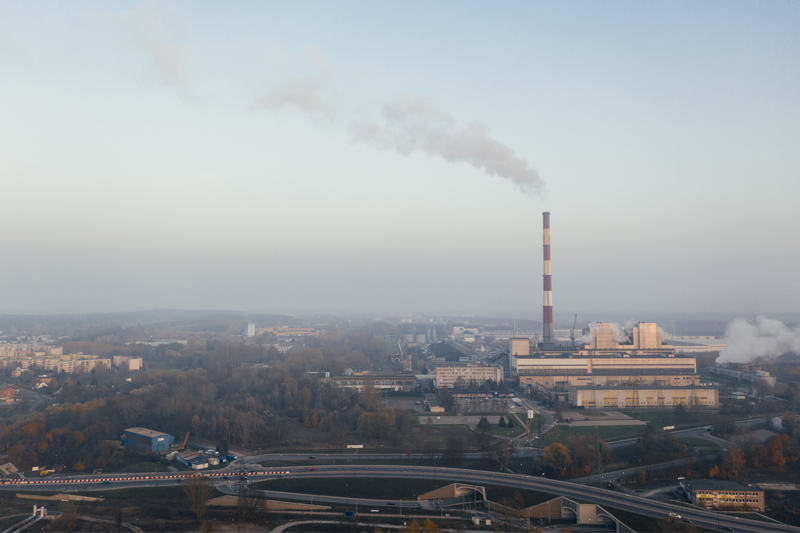
Fossil fuel depletion is a global concern. We have a finite resource we are consuming at an exponential rate. These energy enthusiasts discuss various ways to prevent fossil fuel depletion or slow it at the very least.
Three strategies to decrease fossil fuel consumption
Fossil fuels, such as coal, oil, and natural gas, are finite resources formed from the remains of plants and animals over millions of years. With the increasing global demand for energy, the chances of fossil fuel depletion are significant.
Estimates vary, but some experts predict that we could exhaust our known reserves of oil within the next 50 years, while coal and natural gas reserves may last longer, around 100 to 150 years.
To prevent or delay the depletion of fossil fuels, we must focus on three primary strategies:
1. Improve energy efficiency
One of the most effective ways to reduce fossil fuel consumption is to improve energy efficiency across various sectors, including transportation, industry, and residential. This can be achieved by implementing stricter energy efficiency standards, investing in research and development of energy-efficient technologies, and promoting energy conservation practices among consumers.
2. Transition to renewable energy sources
Investing in renewable energy sources like solar, wind, hydro, and geothermal power is essential to reduce our reliance on fossil fuels. Governments and businesses should prioritize the development and deployment of renewable energy infrastructure, provide incentives for clean energy adoption, and implement policies that promote the integration of renewables into the energy mix.
3. Promote sustainable consumption and production
Encouraging sustainable consumption and production practices can help reduce the demand for fossil fuels. This includes promoting public transportation, carpooling, and electric vehicles; supporting local and circular economies; and adopting sustainable agriculture and manufacturing practices. Education and awareness campaigns can play a critical role in driving behavioral changes among consumers and businesses.
In conclusion, the chances of fossil fuel depletion are real, and it is essential to take proactive measures to prevent or delay this outcome. By focusing on energy efficiency, transitioning to renewable energy sources, and promoting sustainable consumption and production practices, we can mitigate the risks associated with fossil fuel depletion and work towards a more sustainable, clean energy future.
Shift to sustainable and renewable energy
Fossil fuels, such as coal, oil, and natural gas, are finite resources that have been formed over millions of years. Their extraction and combustion contribute to environmental problems like air pollution and climate change. It is crucial to assess the chances of fossil fuel depletion and explore ways to prevent it from happening.
The chances of fossil fuels depleting are not a matter of if but rather a matter of when. These resources are being consumed at an alarming rate, especially considering the growing global energy demands. While estimates on the exact timeline of depletion vary, it is widely acknowledged that fossil fuel reserves are finite and will eventually run out if we continue relying on them as our primary energy source.
To prevent the depletion of fossil fuels, we must shift towards sustainable and renewable energy sources. Transitioning to cleaner alternatives such as solar, wind, hydroelectric, and geothermal power is crucial. Renewable energy technologies have been rapidly advancing and becoming more affordable, making them viable alternatives to fossil fuels. Investing in research and development of these technologies can accelerate their adoption and reduce our dependence on fossil fuels.
Additionally, improving energy efficiency is another key aspect of preventing fossil fuel depletion. Implementing energy-efficient practices and technologies in industries, transportation, and buildings can significantly reduce energy consumption. This includes promoting energy-efficient appliances, insulation, smart grid systems, and transportation solutions like electric vehicles. By maximizing the energy we extract and minimizing waste, we can stretch the lifespan of existing fossil fuel reserves and decrease their depletion rate.
Furthermore, promoting sustainable lifestyles and raising awareness about the importance of conservation can contribute to the prevention of fossil fuel depletion. Encouraging individuals, communities, and businesses to adopt sustainable practices such as recycling, reducing waste, and minimizing energy consumption can have a significant collective impact. Education and outreach programs can play a vital role in fostering a culture of sustainability and inspiring behavioral changes.
Phillip Ziano
Six ways to prevent fossil fuel depletion
While the timeline of fossil fuels depletion is challenging to predict, the likelihood of it happening anytime in the future is hinged on certain factors, [including] the rate at which fossil fuels are being consumed, the discovery and transition to other alternative and cleaner energy sources, policy implementation by government agencies to limit the dependence on fossil fuels and inadequate efforts towards the complete diversification into sustainable sources and cleaner energy.
As the global population is surging and economies develop, it has led to massive demand for energy to drive it all, thereby putting a strain on available fossil fuel reserves.
The extraction of fossil fuels nowadays is becoming less tedious with the development of new technologies, thus making it possible to explore and extract from previously inaccessible areas.
The lack of energy conservation and smart energy infrastructure, especially in the poor nations of the world where these technologies are not readily available and efficient, also increases the burden on fossil fuels.
Finally, the global economy and governments are yet to take a firm stand on the transition to green energy solutions. Transitioning away from fossil fuels is a complex and long-term process that requires concerted efforts from stakeholders such as governments, businesses, communities, and individuals.
Fossil fuels are finite resources [that], if not managed sustainably, will lead to eventual depletion.
We can prevent this impending depletion from happening by taking the following factors into consideration:
1. Promote the conservation of energy
2. Advocacy for a transition to more sustainable, cleaner energy sources
3. Support and fund research on renewable energy solutions
4. Employing stringent policy implementation toward a shift to renewable energy resources
5. Encourage international cooperation and collaboration to solve the issue of dependency on fossil fuels
6. Educate people on the adverse impacts of fossil fuels on the environment
This is a crowdsourced article. Contributors’ statements do not necessarily reflect the opinion of this website, other people, businesses, or other contributors.
.contribution { width: 100%; clear: both; display: block; padding: 30px 0px 30px 0px; position: relative;
height: auto; overflow: hidden; }
.contribution img {display: block; margin-bottom: 10px !important; margin-left: auto; margin-top:15px !important;
margin-right: auto;}
.contribution-headshot { max-width: 200px; }
.contribution-text { max-width: 800px; text-align: left; }
.contribution-left { float: left; margin-right:20px;}
.contribution-right { float: right; }
.contribution-divider { border-top: 2px solid #666; margin: 30px 0px 30px 0px; clear: both; }
.contributor-name {font-size:16px;text-align:center;
margin-bottom:0px !important;
}
.contributor-bio {font-size:13px !important;text-align:center; line-height:1.4em;}
.contribution-left2 { float: left; }
.contribution-right2 { float: right;}
.contribution-text2 { max-width: 800px; text-align: left; }
@media all and (min-width:981px){
.contribution-left { width:25%;}
.contribution-right2 { width:25%;}
.contribution-left2 { width:70%;}
.contribution-right { width:70%;}
}
@media all and (max-width:980px){
.contribution-left, .contribution-right2{margin-bottom:30px !important; width:100% !important;}
.contribution-left2, .contribution-right{width:100% !important;}
}
.contributor-position{text-align:center; font-size:13px !important;}
.contribution-text ol,ul{
font-size: 15px;
color: #000000;
line-height: 21px;padding-bottom:15px !important;}
.contribution-text2 ol,ul{
font-size: 15px;
color: #000000;
line-height: 21px;padding-bottom:15px !important;}
.disclosures { font-size: 11px; font-style: italic; text-align: center; background: #efefef; padding: 15px !important; margin: 50px 0px 20px 0px; clear: both; line-height:1.4em; }
.contributor-job, .contributor-company, .work-info{text-align:center; line-height:1.4em;}





